This article is dedicated to those players who have slowed down a bit due to the simple fact of ageing, but who are still competing at a high level because they manage to play smart(er).
By Tjitte Weistra, Badzine Columnist. Photos: Badmintonphoto
What Peter Gade is capable of at 35 years of age is simply phenomenal and legendary. By the way, I just wanted to make that statement, by no means do I believe that he has slowed down.
The beauty of badminton is that a match can be won in many ways. When you are young and little, you can win a match by simply being bigger or stronger, by being more consistent, by being cleverer or by having superior technique to your opponent. As you get older and you start competing at a high international level, you can expect almost all players to be physically fit, technically outstanding, mentally strong and tactically very experienced. Winning matches at that level usually comes down to tactics and pure mental toughness.
Then, when the biological clock keeps ticking on and it becomes harder to match the fitness levels of the young and upcoming, you just have to play smarter. Experience can overcome lots of elements which are going against you in a game of badminton. Speed and physical fitness can be counteracted by being smarter. How many times do we see young, fit, fast and strong players losing against older, more experienced players just because the older ones play smarter!
The change in scoring system has given the older players also a bit of a helping hand – well, in men’s singles that is, because for ladies’ singles the games have gotten longer. Would Peter Gade, as an example, still be able to compete with the top in the world if the scoring system hadn’t changed? Perhaps yes but it would definitely have been harder.
From my own playing experience, I can say that experience combined with mental toughness can still win a lot of matches. I’m 36 now and am not feeling any faster. The body needs a lot more time to recover and when you play in team competitions which force you to play 15 matches in 5 days, then a Jacuzzi and a few beers come in very handy as a recovery tool at the end of each day.
Still, it surprises me how it is still possible to be competitive with much younger players with whom I could not keep up even for 100m when joining them for a run. They bench press 5 times as much as I can, jump higher, sprint faster, smash harder (which is not very hard I can tell you because my smash is non-existant and never has existed) but when playing a game of badminton, they somehow are not able to use all of that to their advantage.
Experience and mental toughness is the only difference and perhaps deception, which helps a lot in firstly making them wait and secondly they need to stretch for shots which means it is harder for them to get me off balance with their shots, which in turn means I can use my energy very carefully.
Patience is the key
Patience, I forgot to add patience to experience, mental toughness and deception. Patience is a virtue…despite the change in scoring system many years back already, patience is still a key ingredient: patience in finding the right moment to create chaos on the opponent’s side of the court, patience in between rallies to disrupt the opponent’s rhythm, patience when the opponent is clearly in a hurry and unsettled. Patience doesn’t have to mean long rallies, but patience means being disciplined in waiting for the right moment to attack or counterattack.
Patience is often a word used by former top players who have played until a late age and who have since become coaches (pictured here, Wang Chen of Hong Kong).
Playing matches is now my way of training. I don’t do drills anymore. I hate drills. To get fit for badminton I play badminton with a little bit of running and gym now and then. I have to compete to enjoy training, I have to play regularly to keep up my game or should I say to stop it from deteriorating quickly. Don’t you just love playing badminton???
![COACH’S NOTEBOOK – Slower but smarter This article is dedicated to those players who have slowed down a bit due to the simple fact of ageing, but who are still competing at a high level because […]](http://www.badzine.net/wp-content/uploads/Newsflash-thumbnail.png)
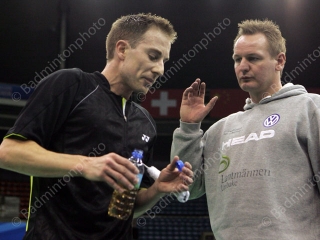
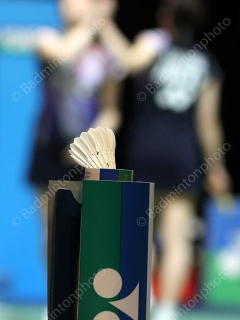
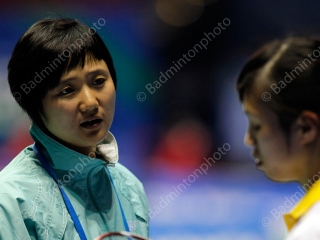
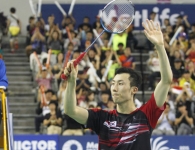
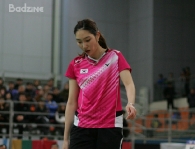

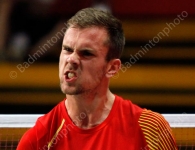
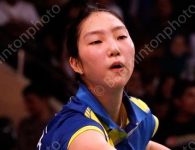

Leave a Reply